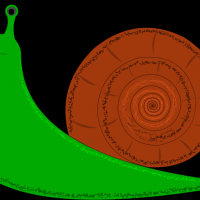Hozzászólások: 12
Nyelv: English
cFlat7 (Profil megtekintése) 2011. november 27. 0:33:29
Specifically, I'm wondering about which syllable gets the stress (zA-men-hof, za-mEn-hof, or za-men-hOf). Was this name Russian, Polish, German...?* I assume it was not Esperantized as that would make it "Zamenhofo" and be pronounced Za-men-hOf-o.
I have web-searched this but did not find too much about it.
*Vikipedio mentions: "L. L. Zamenhof en sia letero al la Berlinaj Esperantistoj mem konstatis, ke lia nomo havas devenon germanan."
= "L.L. Zamenhof himself in his letter to the Berlin Esperantists established that his name was of German origin."
razlem (Profil megtekintése) 2011. november 27. 0:48:58
Following Esperanto pronunciation rules, the stress is on the penultimate syllable: Zamenhofo.
darkweasel (Profil megtekintése) 2011. november 27. 8:17:33
seems he knew the northern dialects better than the southern, as he chose to esperantize it with a z-sound and not with an s-sound.
sudanglo (Profil megtekintése) 2011. november 27. 11:21:27
On the other hand if talking about the Zamenhofa traduko de Hamleto, I would use the usual Esperanto stress rule.
brodicius (Profil megtekintése) 2011. november 27. 22:19:25
sudanglo:I would also stress the first syllable if using just the name.I just had to think about this, but I think I would have automatically done the same thing: 'ZAMenhof' but 'zamenHOFa traduko de hamleto'.
On the other hand if talking about the Zamenhofa traduko de Hamleto, I would use the usual Esperanto stress rule.
It would just mess up the pace of the sentence if I didn't use the penultimate syllable in that case.
lgg (Profil megtekintése) 2011. november 29. 4:24:46
cFlat7 (Profil megtekintése) 2011. november 30. 5:52:32
ceigered (Profil megtekintése) 2011. november 30. 13:48:56
lgg:Without any doubt, ZamenGOF.Would he (unless you've listened to a recording if such things existed at the time)? He was in an area that was smack-bang in the middle of german, polish, belorussian and russian culture, would he have spoken perfect russian and would he have continued speaking that hypothetical perfect russian later into life?
Because in Belarusian "g" sort of sounds like "h/gh/french R, which with a Ruso-polish accent might sound closer to a "h~ĥ" sound, so "Zamengov" with the Yiddish influence might be interpreted as "Zamehof" anyway, even though he might have spelt it Заменгов and still spoken russian like a native.
Mind you I know little more about the linguistic history of that region than I do about Area 51, so meh
 (this little bit does interest me though, especially since I now know I have belarusian/this general north-poland-west-belarusian heritage, so suddenly whether it's "Zamehof" or "Zamengov" is "important" to my identity haha).
(this little bit does interest me though, especially since I now know I have belarusian/this general north-poland-west-belarusian heritage, so suddenly whether it's "Zamehof" or "Zamengov" is "important" to my identity haha). UUano (Profil megtekintése) 2011. december 5. 16:52:26
darkweasel:his name was actually "samenhof", a german name stressed on the first syllable.I had no idea his name had been spelled with an "s". Fascinating!
seems he knew the northern dialects better than the southern, as he chose to esperantize it with a z-sound and not with an s-sound.
Außerdem muß ich wirklich mein deutsch auffrischen...
UUano (Profil megtekintése) 2011. december 5. 16:56:03
ceigered:Because in Belarusian "g" sort of sounds like "h/gh/french R, which with a Ruso-polish accent might sound closer to a "h~ĥ" sound, so "Zamengov" with the Yiddish influence might be interpreted as "Zamehof" anyway, even though he might have spelt it Заменгов and still spoken russian like a native.And apparently, it's spelled Заменхоф in Bulgarian!







